99+ Helpful ChatGPT Prompts for Doctors: Power Up Doctor and Patient
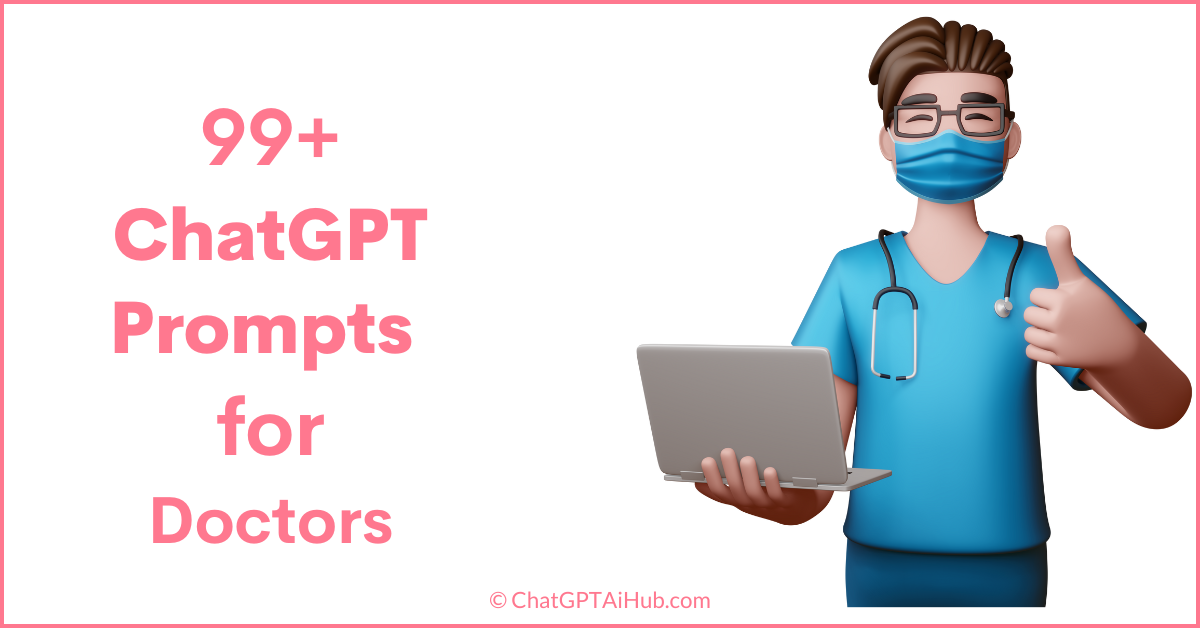
Doctors today have access to various tools to help them provide better care to their patients. One such tool is ChatGPT, an artificial intelligence language model that can be trained to provide accurate and relevant responses. ChatGPT prompts are specific words or phrases that help the model generate responses that cater to a doctor’s focused area of discussion. In this article, we will explore the best ChatGPT prompts for doctors, helping healthcare practitioners improve patient care and optimize their medical practice.
The Challenge of Effective Doctor-Patient Communication
Healthcare providers face numerous challenges when it comes to communicating with their patients. One of the most significant barriers to effective communication is the use of medical jargon, which can be confusing and overwhelming for the average person. ChatGPT prompts can help bridge the gap between doctors and patients by providing accurate and concise responses that are easy to understand.
Navigating a Growing Volume of Medical Information
In today’s digital age, the amount of medical information available can be overwhelming. Doctors must be able to efficiently navigate this information and provide accurate advice to their patients. ChatGPT prompts can help healthcare practitioners sort through the vast amount of data available, giving them more time to focus on providing quality care to their patients.
Improving Efficiency and Productivity in Medical Practice
Medical practitioners often struggle with limited time and resources, making it challenging to provide top-notch care to their patients. By incorporating ChatGPT prompts, doctors can streamline their workflow and increase their productivity, allowing them to provide better care and optimize their practice.
By reading this article, readers can learn about some of the best ChatGPT prompts for doctors. They will discover how incorporating ChatGPT can help them improve doctor-patient communication, navigate medical information more efficiently, and streamline their workflow, ultimately providing better care to their patients.
Visit Here: For All ChatGPT Prompts
Why ChatGPT Prompts are Essential for Efficient and Effective Doctor-Patient Communication
ChatGPT prompts are becoming increasingly important for doctors who want to improve their patient care and optimize their medical practice. Here are some reasons why:
First, ChatGPT prompts can help doctors communicate more effectively with their patients. According to a study by the American Medical Association, communication errors are one of the leading causes of medical malpractice. By using ChatGPT prompts, doctors can ensure that they are providing accurate information in a way that is easy for patients to understand. This can lead to better patient outcomes and reduced malpractice risk.
Second, ChatGPT prompts can help doctors navigate the growing volume of medical information available. According to an article in the New England Journal of Medicine, medical knowledge is doubling every 73 days. It is impossible for any one person to keep up with all this information. By using ChatGPT prompts, doctors can quickly access the information they need to provide quality care to their patients.
Third, ChatGPT prompts can help doctors streamline their workflow and be more efficient. By automating certain tasks, doctors can free up time to focus on more complex cases. This can lead to improved patient outcomes and increased job satisfaction for doctors.
In short, ChatGPT prompts are important for doctors because they can help improve communication with patients, navigate medical information more efficiently, and streamline workflows for better patient outcomes.
Visit Here: 99+ ChatGPT Prompts for Dentists
Prompts for Professionals
99+ Effective ChatGPT Prompts for Doctors: The Comprehensive Guide
You are a doctor and a patient comes to you with a chronic condition that has been misdiagnosed by other doctors. How do you approach the situation?
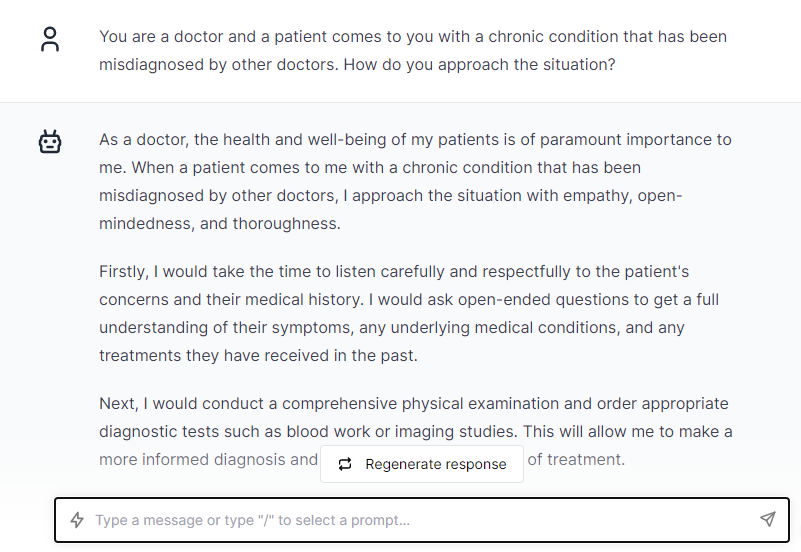
A patient comes to you complaining of severe anxiety and depression. What treatment options would you suggest?
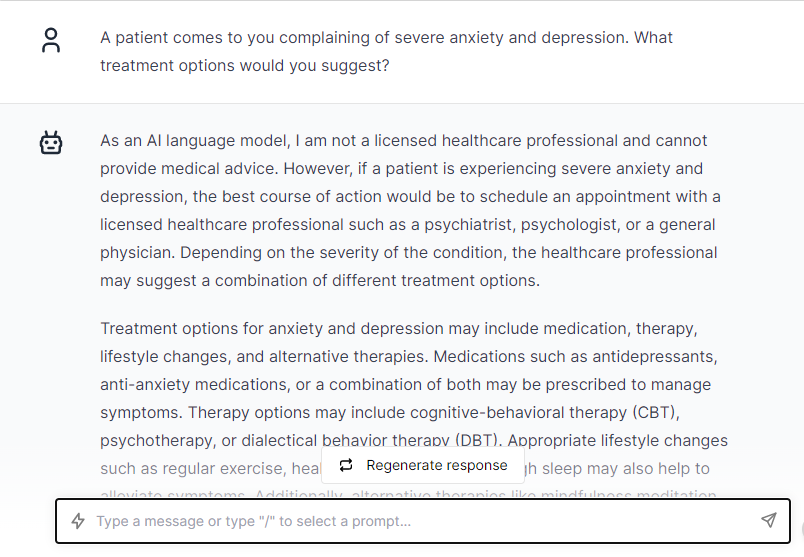
You have a patient who is refusing to take their prescribed medication. How do you handle this situation?
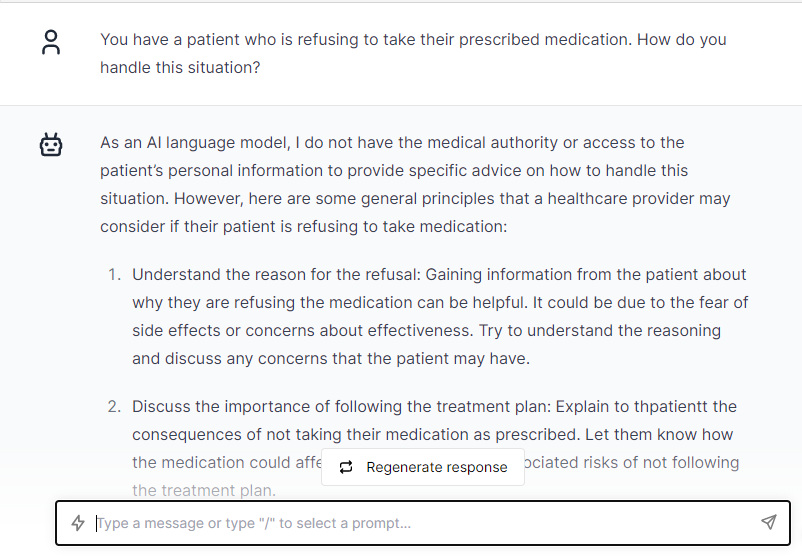
A patient comes to you with a rare disease that you have never encountered before. How would you go about diagnosing and treating them?
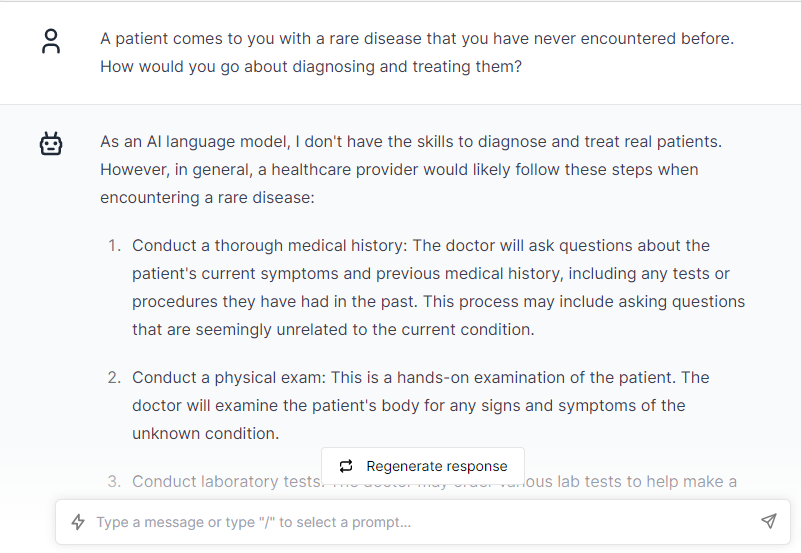
A patient comes to you with a terminal illness and asks for your opinion on assisted suicide. How do you respond?
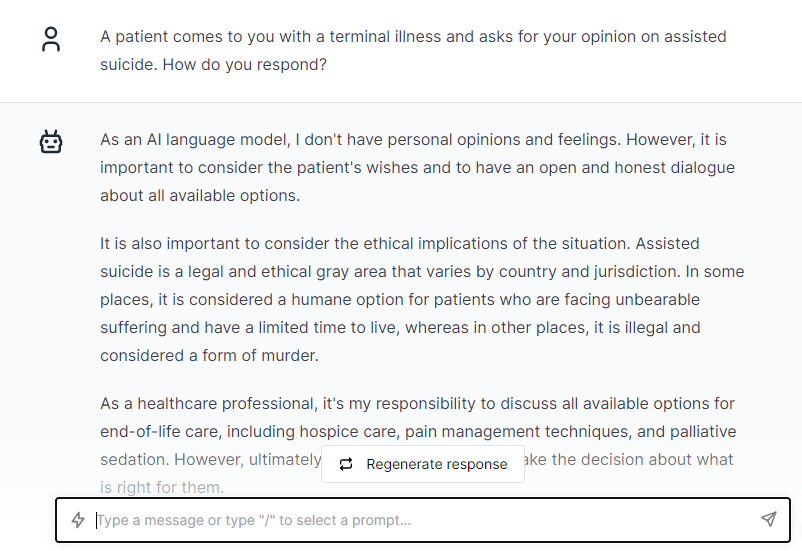
- A patient comes to you with a medical condition that requires surgery. How do you prepare the patient for the procedure?
- A patient comes to you with a problem that can be solved with a relatively simple procedure. However, they are scared of the risks involved. How do you handle this situation?
- A patient comes to you with a medical condition that requires a specialized test that is not available in your hospital. How do you proceed?
- A patient comes to you with a medical condition that you have never seen before. How do you go about diagnosing and treating them?
- A patient comes to you with a chronic condition that is not responding to treatment. How do you adjust their treatment plan?
- A patient comes to you with a complex medical history. How do you ensure that you have all the necessary information to make an accurate diagnosis?
- A patient comes to you with a medical condition that requires a long-term treatment plan. How do you ensure that the patient stays committed to the treatment?
- A patient comes to you with a medical condition that requires regular monitoring. How do you ensure that the patient receives the necessary follow-up care?
- A patient comes to you with a medical condition that requires medication that has unpleasant side effects. How do you help the patient deal with these side effects?
- A patient comes to you with a medical condition that requires lifestyle changes. How do you help the patient make these changes?
- A patient comes to you with a medical condition that requires them to be hospitalized. How do you prepare the patient for their hospital stay?
- A patient comes to you with a medical condition that requires them to make significant changes to their daily routine. How do you help the patient adjust to these changes?
- A patient comes to you with a medical condition that requires them to take medication at specific times of the day. How do you help the patient remember to take their medication?
- A patient comes to you with a medical condition that requires them to be referred to a specialist. How do you ensure that the referral is made in a timely manner?
- A patient comes to you with a medical condition that requires them to make significant lifestyle changes that they are resistant to. How do you motivate the patient to make these changes?
Also, Visit: 1350+ ChatGPT Prompts For Email Marketing
Get 99+ ChatGPT Prompts for Doctors – Complete List
Free Prompts forever
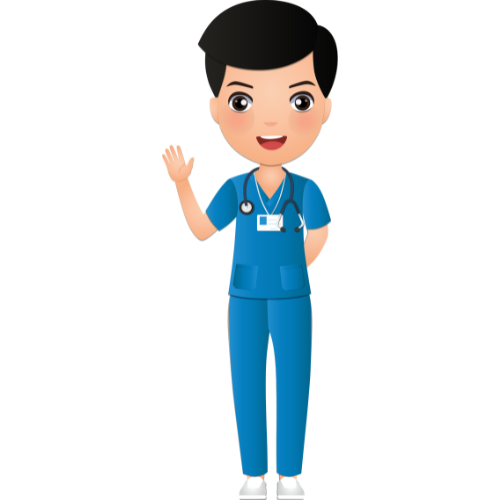
Final Thoughts:
In conclusion, ChatGPT prompts are a valuable tool for doctors looking to improve their patient care and optimize their workflows. With ChatGPT prompts, doctors can communicate more effectively, navigate vast amounts of medical information, and streamline their work processes. We’ve provided a comprehensive guide of 99+ ChatGPT prompts for doctors to use in various situations. Incorporating these prompts into daily practice can lead to improved patient outcomes and increased job satisfaction for medical practitioners. By leveraging ChatGPT technology, healthcare providers can enhance their patient care and keep up with the constantly evolving medical field.

